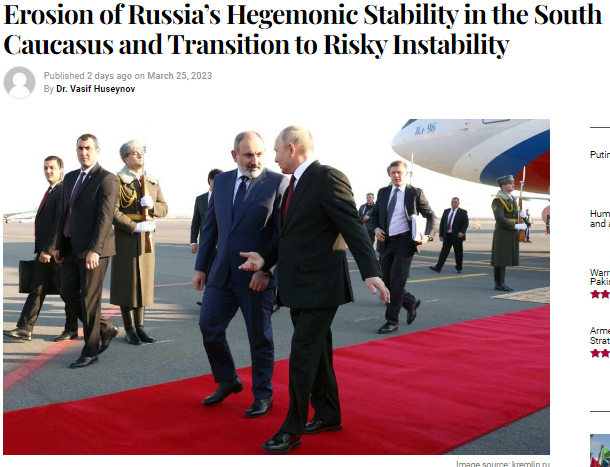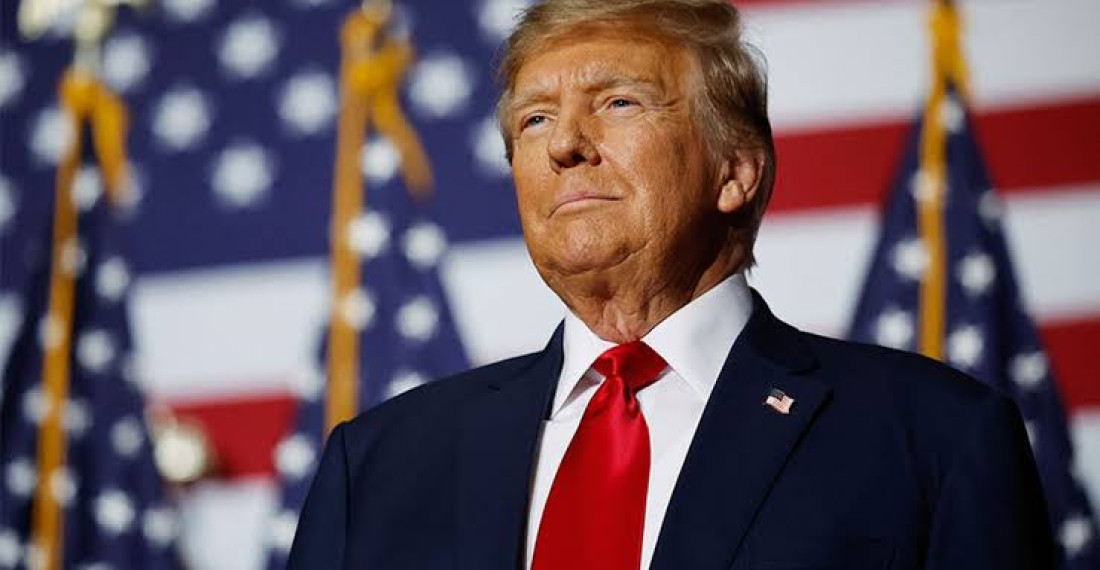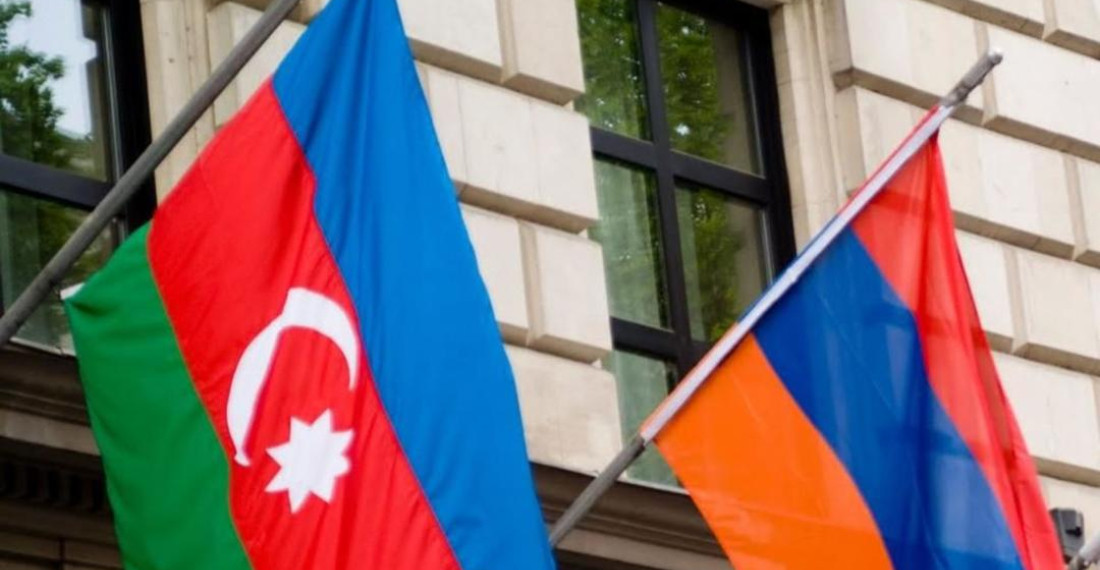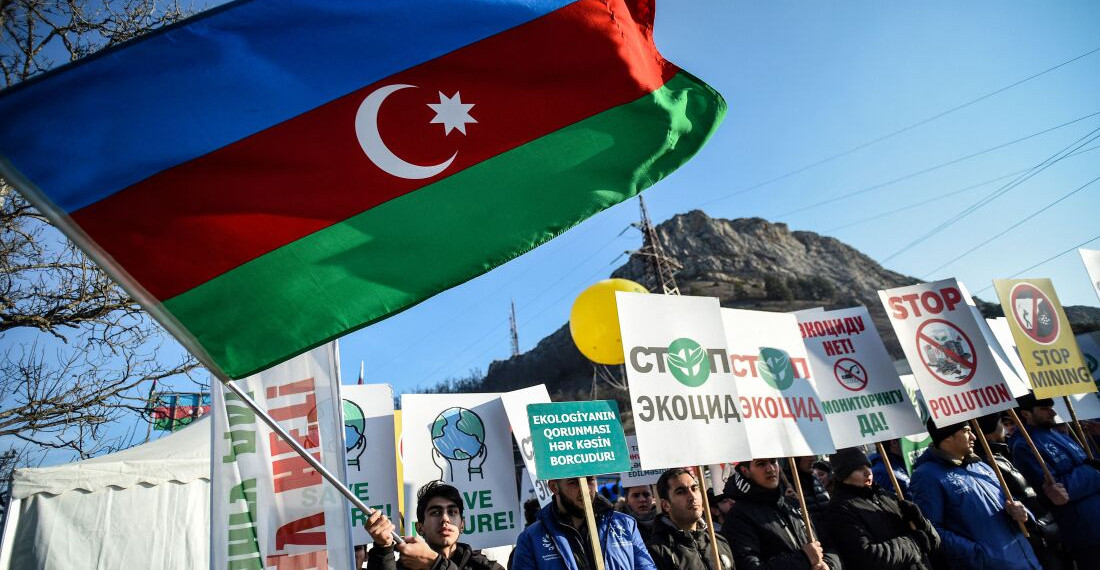In early nineteenth century, following the wars with Persian and Ottoman empires, Russia completed the invasion of the South Caucasus. The region that hosts present day Armenia, Azerbaijan and Georgia remained under the control of Moscow until the collapse of the Soviet Union in 1991, though the three countries were independent for a brief period after the World War I. Suppressing the independence movements in these countries along with the other parts of Russian Empire and later the Soviet Union in Eastern Europe and Central Asia, Moscow also acted as security provider in the region. In this role, Russia subdued conflicts between the subjects of the empire and also countered the intervention of external powers into “its” territories. This created a stability in the South Caucasus, as in other parts of the empire, dubbed by the theories of international relations as “hegemonic stability”.
In early 1990s, the Soviet Union collapsed and, subsequently, most of the newly independent states in the territories of the former empire ushered into inter- and intra-state conflicts. In the South Caucasus, Russia sought to manipulate and ultimately benefit from these flashpoints in order to preserve its influence over the region. Moscow’s support to Abkhaz separatists in Georgia and Armenia’s occupation of the Karabakh region of Azerbaijan in early 1990s helped the Kremlin recover its control over three countries of the South Caucasus. This translated into resurgence of Russia-dominated security order in the region in the post-soviet period but with more assertive independent states that sought to boost their sovereignty while minimizing Russia’s hegemony.
Armenia joined the Russia-led security and economic integration with a full membership at the Collective Security Treaty Organization (CSTO) and Eurasian Economic Union (EAEU). Azerbaijan, on the other hand, managed to build neutral and multilateral foreign policy and succeeded to resist Russia’s pressure thanks to economic independence of the country. The only country of the region, Georgia, that sought to escape Russian orbit and join the Eura-Atlantic political and military structures faced insurmountable obstacles on this path and remained in-between. Russia’s occupation of two regions of Georgia (Abkhazia and South Ossetia) in 2008 has served for the Kremlin as the Sword of Damocles over Tbilisi’s foreign policy.
The post-Soviet hegemonic stability in the South Caucasus has been, therefore, more volatile compared to earlier periods. The occasional military escalations between Baku and Yerevan along with the war in Georgia (2008) manifested such sporadic disruptions of the regional security order. However, in both cases, Russia succeeded to act as hegemon by recovering ceasefire between Armenia and Azerbaijan and putting a de-fact veto on Georgia’s foreign policy.
Even during the full-scale military operations between Azerbaijan and Armenia in 2020, known as the Second Karabakh War, Russia appeared as the only mediator with enough authority to bring the sides to ceasefire. Deploying its troops to the Karabakh region of Azerbaijan under the name of peacekeepers, Russia managed to complete its mission of deploying its troops on the soil of each of the three countries of the region.
Hence, in the post-Soviet period, Moscow managed mostly to preserve the security order in the region under hegemony of Russia. The Kremlin, however, has had to swallow growing security ties between Azerbaijan and Turkiye, but reacted more calmly to these ties as Baku demonstrated deference to Russia’s core national interests and concerns in the region.
In the wake of Russia’s invasion of Ukraine in February 2022, Moscow’s dominance established over the South Caucasus in early nineteenth century came under jeopardy for the third time after the post-WWI and early years of the post-Soviet periods. Facing an unexpected military debacle in Ukraine and massive economic troubles at home, Russia encounters challenges against its dominance in the South Caucasus, the region that has overarching geopolitical significance for Moscow.
This time the challenge to Russian power originates in Armenia and Azerbaijan, as Georgia avoids provoking Moscow and seemingly drifts away from its pro-Western aspirations. On the one hand, Azerbaijan criticizes Russia’s support to the separatist regime in the Karabakh region, tries to end the mission of the peacekeeping contingent, deepens its strategic alliance with Turkiye, increases its contributions to the energy security of Europe, and relies more on the EU’s mediation in the peace process with Armenia. On the other hand, Armenia defies Russia’s authority by distancing itself from Russia’s military bloc, builds closer relations with the European countries and the United States and invited a mission of the EU to monitor the security situation along Armenia’s border with Azerbaijan. The Kremlin reacted rather furiously to these developments and blamed the West on attempts to squeeze Russia out of the South Caucasus.
To the disappointment of Moscow, this signifies a decline in Russia’s dominance over the region, although it is now premature to say how this process will go on and whether this will end up with Russia’s withdrawal from the South Caucasus. The decline of Russian influence over the region creates a period which can be seen through the lens of the power-transition theory of international relations. According to this conceptual framework, the decline of the dominant power might lead to a conflict or war with the rising power as the latter becomes more assertive seeking to challenge the dominance of the declining power. This can be observed also as the emergence of a power vacuum in the respective region which other powerful state(s) might try to fill in which again leads to a conflict or war between the dominant power and rising power(s).
The present situation in the South Caucasus, thus, resembles the period described by the power transition theory. Other external powers, including Iran, Turkiye, the EU and United States try to benefit from Russia’s diminishing influence over the region and increases their power. Particularly, for Iran, the “encroachment” of the external players into the South Caucasus is inadmissible. The Russia-Ukraine war complicated the regional geopolitics for Iran as the European Union (EU) and United States have increased their influence in the South Caucasus by boosting their mediating role in the Armenia-Azerbaijan peace process, effectively sidelining Russia therein and deploying a monitoring mission to the Armenia-Azerbaijan border in the aftermath of Prague summit (October 6). Against this background, increasingly closer relations between Israel and Azerbaijan and the emerging possibility of the formation of Israel-Turkiye-Azerbaijan trilateral cooperation platform further enrage the Iranian authorities.
Tehran is determined to use military and other instruments to fill in the power vacuum emerges in the region in the wake of Russia’s decline. In this endeavor Iran effectively enjoys the support of Armenia whose leaders try to use the Iranian card against their common enemies of Azerbaijan and Turkiye. The recently growing ties between Armenia and Iran have provided Tehran a useful chance to get into the South Caucasus more assertively and form a de-facto alliance against the two Turkic states. Towards this end, Yerevan and Tehran are clearly building up their cooperation in various spheres, including military and economy. Apart from aiming to boost bilateral trade turnover from $700 million to $3 billion, Iran is also discussing supplying combat drones to Armenia.
That said, the hegemony Russia acquired over the South Caucasus in early nineteenth century is fading and with it the security order it built in the region is rapidly eroding. This process might be accompanied by violent conflicts and wars amongst different regional and external actors. For now, the major security threat to the regional stability is Iran and the alliance it builds with Armenia.
https://moderndiplomacy.eu/2023/03/25/erosion-of-russias-hegemonic-stability-in-the-south-caucasus-and-transition-to-risky-instability/








